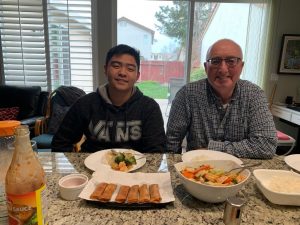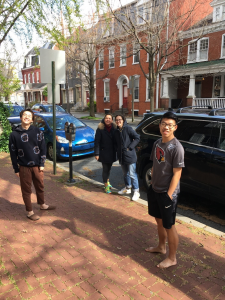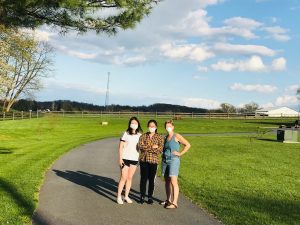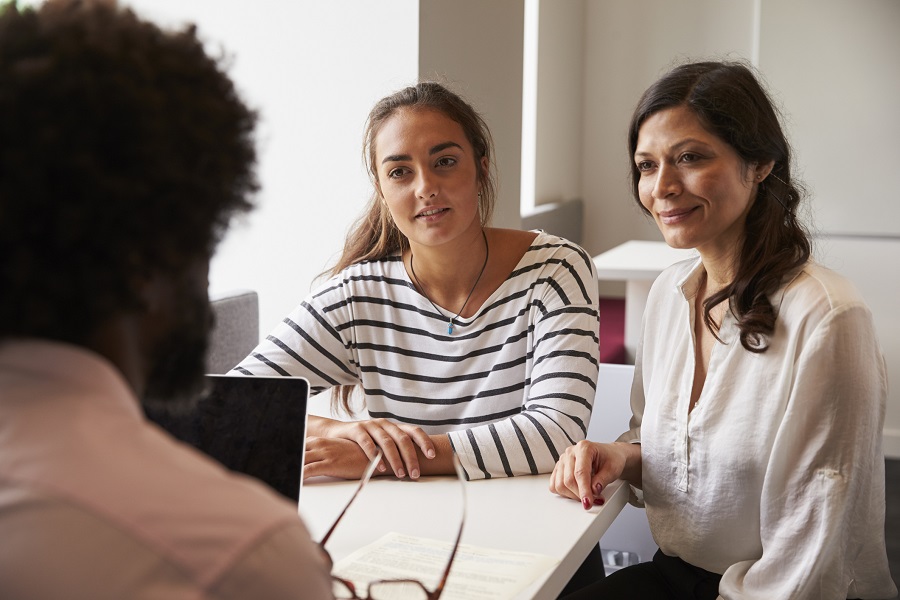Host families have had to adjust to the “new normal” of caring for their international students during the coronavirus (COVID-19) pandemic, while natural parents have increasingly worried about the safety of their children. Now more than ever, communication between families is essential. Bringing trusted adults and students together to communicate in honest and open ways can help everyone minimize their stress. The smooth flow of information is the key to reducing miscommunication and anxieties. These communications are important for natural parents to be aware of the protections in place and the safe living environment for the students. Click here to learn more about “Using Technology to Communicate During COVID-19 With Host Families and Natural Parents”.
By communicating the precautions exercised in the home, the daily routines, and even food prepared with the natural family, the hosts and the student’s family build trust and friendship. It assures the biological parents that the host family is doing an excellent job of taking care of the students during these difficult times. Cambridge Network student Mike Ma’s parents and his hosts, the Woods family, recently exchanged letters in a beautiful gesture to show each other their care and understanding of each other. To read more about this story, follow this link.

The cultural differences and language barriers are often the two big obstacles many students face when they arrive in America, the same obstacles appear in host to natural parent communication. With the help of our hard-working Family Education Advisors, host families can get the messages translated to natural parents and vice versa! When communicating, families on both sides should take into consideration the local cultures and social practices to best observe cultural awareness. Students can help tremendously in bridging the cultural gaps between the two families.
One example of cultural differences is that natural parents from Asia often consider wearing face masks when going outside essential. This is mainly due to the different historical and cultural norms in our societies. Even before the coronavirus outbreak, in many Asian countries, wearing face masks in public is seen as customary. Here is a brief history of face masks in Asia, which you may find useful. It is understandable for the natural parents of international students to worry about their students when the culturally many Americans are still not used to wearing masks.

To wear or not to wear a face mask when going outside may have been a point of conflict between the host family and the natural parents. However, we have seen our hosts and natural parents speak openly and candidly about their worries and concerns. Many host families have respected the biological parents’ feelings and proactively communicated with them. As more states and local governments require face masks in public, this issue has become less a point of difference and more of a point of similarity between the two cultures.

The COVID-19 pandemic has brought up a lot of new scenarios and experiences for all of us. We are all learning to navigate this new normal together. With that in mind, if you have a concern or a problem, pull each other aside to somewhere private (online or in-person), and state how the situation makes you feel. Be honest, respectful, and candid. Assume the best intention of the other person and trust that what they are doing is out of care and love. If you haven’t already, check out our “How to Talk to Your Students About Coronavirus (COVID-19)” blog.
Check out our homestay blog for more information on Cambridge Network as a residential provider, tips for hosting, and our host testimonials. If you’re interested in hosting an international student, please fill out an inquiry form!



